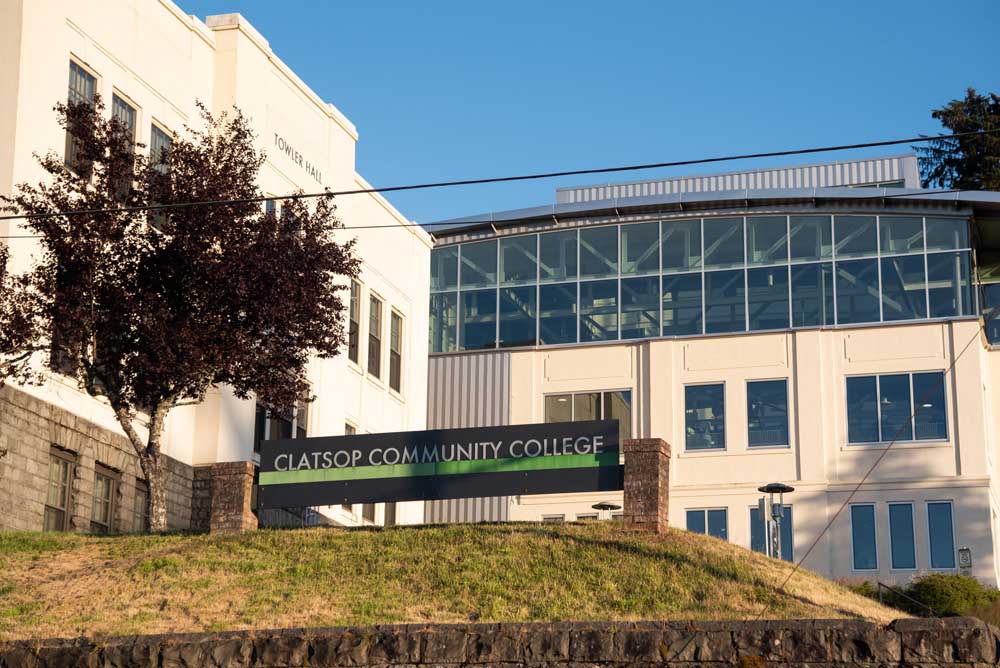In a name: Trademark issues lead to local rebranding and angst
Published 10:38 am Friday, February 5, 2016

- Pilot House Spirits
By Cynthia Washicko
Trending
cwashicko@crbizjournal.com
When Richard Erickson was deciding on names for his brewery in Cathlamet, he was sure about the name he picked out: Drop Anchor Brewery. He knew it could run afoul of one of California’s largest craft beer makers — Anchor Brewery, but he thought a brewery on the banks of the Columbia River was too small to attract attention from one of craft beer industry’s biggest players.
He was wrong.
Trending
Less than a year after he opened his business, Erickson faced a trademark lawsuit and was forced to change the name of his business from Drop Anchor Brewery to River Mile 38 Brewing Company.
“[Anchor Brewing] sent us a letter and basically told us to cease and desist or they would take us to court,” Erickson said. “They had a whole lot deeper pockets than we did, and the name ‘Anchor’ was trademarked.”
In Astoria, an hour to the west of River Mile 38, Larry Cary has faced similar situations. His distillery, then called North Coast Distilling, was facing a suit from North Coast Brewing, another craft beer brewery based in California.
Like Erickson, Cary was aware of the similarly named alcohol company when he opened his distillery, now Pilot House Spirits, but he was advised that there wouldn’t be an issue.
On Feb. 20, 2015, however, Cary received a letter from North Coast Brewing asking him to stop using North Coast in his distillery’s name, according to case documents. Even then, lawyers advised him that his distillery fell under different classifications than the California brewery, and he opted not to change his business’ name, he said.
Months later, North Coast Brewing filed a suit in the San Francisco federal district court alleging trademark infringement and unfair competition. The case ended out of court after Cary changed the name of his distillery to Pilot House Spirits.
Last month, House Spirits Distillery, a Portland-based craft distillery founded in 2004, filed suit claiming Cary’s new name violates “established valuable trademark rights and goodwill throughout the United States.”
The distillery, known for Aviation American Gin, has registered “House Spirits” and “House Spirits Distillery” with the U.S. Patent and Trademark Office.
Cary, who has won praise for his line of craft vodka, gin and other spirits, plans to fight this time.
“I’m taken aback by it,” he said. “I think it’s ludicrous. It makes no sense.”
If House Spirits Distillery was truly concerned about intellectual property, Cary said, the company would have also gone after larger operations, such as Rogue Ales and Spirits, which runs the House of Spirits in Newport.
Cary said he vetoed several options before settling on Pilot House Spirits, a name that evokes Astoria’s history as the home of bar and river pilots.
“Pilot house has a special meaning,” Cary said, adding that he tried to explain the name to House Spirits Distillery, to no avail.
The protection and enforcement of a trademark falls to the company that owns it, said Joseph Mohr, an intellectual property attorney with Mohr IP Law in Portland. The owner of the trademark runs the risk of forfeiting their right to the mark if they don’t actively protect it from infringement, Mohr said.
The geography of the case is another important factor — unless there is overlap between the two brands’ consumer bases there’s no trademark infringement occurring, Mohr said.
“Somebody could use a trademark in Southern California [and] somebody could use it in coastal Oregon and if their consumers weren’t aware of each other’s mark, there would be no problem with that,” he said.
Erickson ran into that issue with his brewery. It wasn’t until after River Mile 38 hired a distributor to get the brewery’s beer into taphouses and restaurants that Anchor Brewing took notice, he said.
The suit against Erickson and the 2015 one against Cary were settled out of court, a common outcome for trademark litigation, Mohr said. The cost of litigation makes going to court unappealing, and the core of a trademark suit is simply to force the other company to stop infringing on the plaintiff’s mark. If that can be accomplished out of court, it’s better for everyone in the long run, he said.
Erickson and Cary said their experiences were more than cases of just trademark enforcement — they were dealing with cases of of trademark bullying.
“It just feels like a bigger guy coming after a smaller startup,” Cary said. “Other than that, why would you take someone to federal court?”
According to the U.S. Patent and Trademark Office a trademark bully is a company “that uses its trademark rights to harass and intimidate another business beyond what the law might be reasonably interpreted to allow.”
A larger company can often see a trademark suit as an opportunity to prevent potential problems while it has the financial upper hand, Mohr said.
Erickson and Cary said a new name meant total rebranding.
Changing over from North Coast Distilling to Pilot House Distillery cost Cary more than $10,000 to cover legal fees as well as new signage and labels for the business.
The cost to design a new logo and relaunch the brand cost Erickson around $5,000, he said, and most likely set back sales. Even with the expense of starting over, Erickson said he was glad to have dealt with the issue when his brewery was only a year old, rather than further into the future when his brand was more established.
“It would have been more difficult if we had been in business for five to six years and then had to rebrand,” he said.








